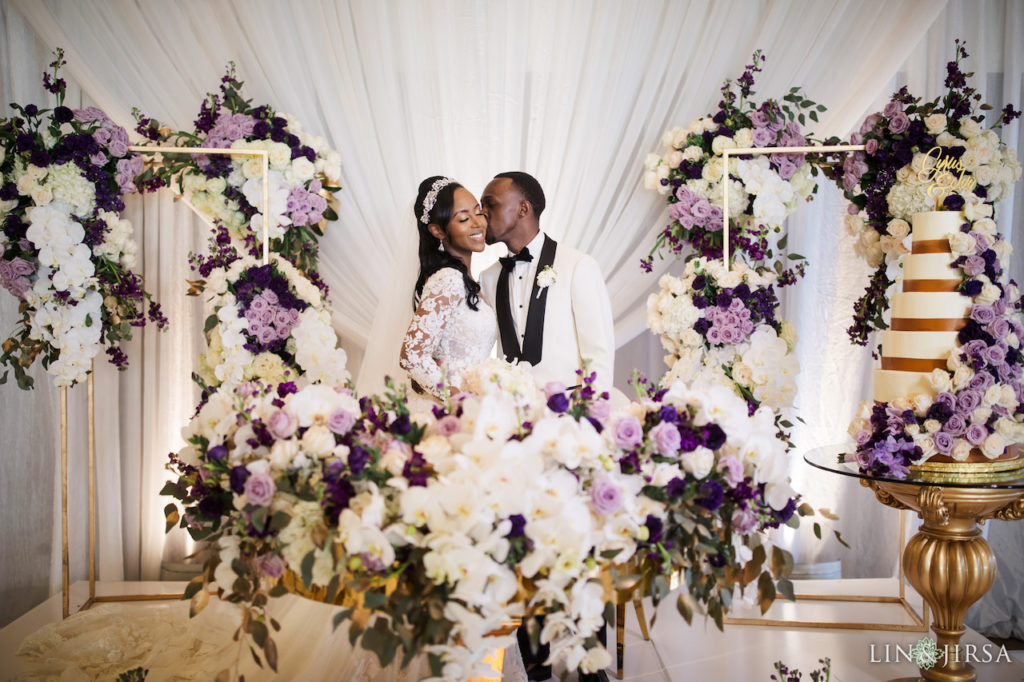
African Wedding Traditions and Customs
Africa, the second largest continent in the world, is home to five diverse regions that bring different rituals, traditions, and customs to African Weddings. From the richness in culture to the African traditional wedding dresses, each element combines to create a fantastic, unique experience. Typically, African weddings represent the highlight of town, and those in attendance tend to give their best to honor the occasion.
Here are some significant details you should know about African wedding traditions.
It’s a Big Celebration
Africans across the south may celebrate weddings differently from those in the west, but there’s one thing they all have in common: African weddings tend to be big, regardless of where they’re celebrated in the world!
Moreover, African wedding traditions cover the gamut, from dance and music to symbolic colors and food. At an African wedding, you can expect danceable music, flashy color themes as well as an array of local and international dishes.
Traditional Attire
Some parts of Africa use the white gown and wedding suit attire while others don’t. Whichever route is chosen, there’s often an element of traditional attire, too. This means that over the course of a wedding, the couple may change outfits to reflect those traditions that are wardrobe specific.
The traditional attire for the couple and attendees comes from a woven cloth that is a representation of their history and native roots, and the color and style of the outfits differ from place to place. For instance, in West Africa, the Kente fabric features bright green, red and gold streaks. Some other countries use a cloth with beautiful patterns called Ankara.
Typically, African traditional wedding dresses feature a blouse, skirt, and a special headwear. They make all these items just for the wedding day. Men, on the other hand, typically wear a shirt, long pants, and a special cap.
Rituals and Ceremony
African wedding ceremonies are usually the more solemn and revered of activities for the day. In the western African tradition, they take part in an activity called broom jumping. By jumping over a broom, the couple engages in an activity that is a symbol of their new union. In fact, jumping the broom is often featured during African American weddings, too. These special rituals differ based on the region.
What to Expect from Different African Traditional Weddings
The rituals are different in many African weddings, especially around traditional wedding dresses. Here’s what to expect from the north, west, and other areas of Africa.
North Africa
Those living in North Africa make up the majority of the Muslim population of Africa. North Africa includes countries like Egypt, Libya, and Tunisia. Typically, brides in this region have a bath they call Hammam. Another one of the rituals is a henna party where their feet and hands will be decorated using traditional dye, much like you’d find at a Hindu wedding.
For Muslim weddings in Africa, the rituals and traditions stem mainly from Islamic traditions. For example, Islamic African traditional wedding dresses should be conservative — no bare arms and legs. Muslim weddings also include a Nikah ceremony, which features gender segregation and special prayers.
West Africa
West African cultures have rituals where the bride feeds the couple. There’s also a formal request ceremony where the groom asks for the bride’s hand in marriage. In some other West African traditions, they share a Kola nut.
African traditional wedding dresses in the West of the continent are called Aso Ebi. Usually, both sides of the new couple pick different color schemes. The guests are not left out, either. They wear outfits made from these prints to show their connections to the family.
East Africa
The wedding traditions in East Africa mirror that of the North. Many cultures in this region also practice Islam, hence the similarities.
That said, there are certain unique rituals to expect before the wedding day. Swahili husbands, for instance, meet for Kirumbizi, a fight-dancing event. In Ethiopia, they wear elegant gowns and garments featuring a design that uses a fabric known as Habesha.
South and Central Africa
The Zulus from South Africa have a wedding ritual they call Umabo. They perform this ritual in addition to carrying out a conventional white wedding. The African traditional wedding dresses from this region also make for an interesting subject. Brides wear specially designed headwear called Isicholo. Also, it’s worth noting that conventional wedding events take place at the home of the groom’s parents.
To Wrap it Up
African wedding traditions are genuinely fascinating. Across the continent, they display love and respect for the symbolism of marriage. While this list is nowhere near exhaustive, we hope you found the information helpful and informative, especially if you plan to attend or host a wedding that features African wedding traditions.



